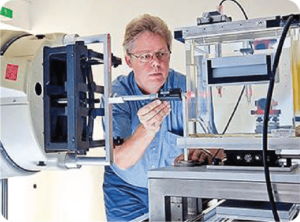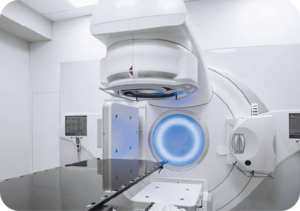Getting Linear Accelerator Commissioning Right: Protecting Patients, Preventing Risks

When it comes to cancer treatment, precision matters. Linear Accelerators (LINACs) are the workhorses of modern radiotherapy, allowing doctors to deliver powerful doses of radiation directly to tumors while minimizing damage to healthy tissue. Behind this incredible technology is a critical process called commissioning. This involves a rigorous set of tests and calibrations to ensure the machine performs exactly as it should. If this process is not done correctly, the stakes are high. Errors during commissioning can seriously impact patient outcomes, leading to ineffective treatment or unnecessary side effects.
Why Is Accurate Commissioning So Important?
Imagine building a finely tuned car engine. Every component must be calibrated correctly; otherwise the engine will run rough or even break down. The same principle applies to LINACs. During commissioning, clinical physicists verify every aspect of the machine including radiation output, beam geometry, treatment planning models, to confirm that they are all within precise limits. Even a small error can be the difference between successful tumor control and treatment failure or serious side effects and long-term complications.
Errors at this stage are not just small setbacks. They can cause doses to be delivered either too high or too low, jeopardizing patient safety. Small misalignments or calibration mistakes can add up quickly, especially when dealing with complex treatments such as intensity-modulated radiotherapy (IMRT) or stereotactic radiosurgery (SRS). The bottom line is that proper commissioning is foundational to effective and safe treatment.
What Does the Data Say About the Failure Rates?
A recent review of errors in LINAC commissioning underscores how critical this process is. As highlighted in a study referenced in the paper “Treatment Planning System Calculation Errors Are Present in the Majority of IROC-Houston Phantom Failures” (PMID: PMC5567850), the failure rate of LINAC commissioning procedures is alarmingly significant. The review found that up to 20% of LINACs in clinical use could have significant undetected commissioning errors due to insufficient validation or oversight. These errors directly threaten patient safety and treatment efficacy, the two most important goals for any radiation oncology center.
More strikingly, the study suggests that a considerable percentage of clinical incidents involving radiation overdosing or underdosing can be traced back to initial commissioning mistakes. This statistic highlights how crucial thorough validation is and highlights the risks of overlooked errors.
 What Hidden Challenges Do Physicists Face?
What Hidden Challenges Do Physicists Face?
Radiation physicists play a central role in commissioning, but in many clinical settings, they are not involved from start to finish as often as one might expect. Their workload is usually filled with routine clinical responsibilities such as periodic machine QA, treatment planning support, and other clinical tasks, leaving limited time and resources to devote to in-depth machine commissioning. Additionally, a linac typically remains in service for a decade or more. If a physicist has been at the same site for their entire career, odds are that they either have never been involved in a commissioning or the last time they were was well over a decade prior.
This situation creates a challenging problem. Without regular experiences in commissioning, physicists may lack access to all the detailed processes and validation data needed to detect subtle errors. They often rely on vendor-provided data, routine measurements, and their own limited tests, which may not cover every possible discrepancy. This reliance on internal data, combined with time constraints, increases the risk that some issues could go unnoticed, and if those issues persist might directly impact patient safety.
Why Is Limited Validation Data a Problem?
Most internal validation relies on standard QA checks and vendor specifications. While these are valuable, they are not always enough to catch every potential problem. External validation data, which comes from independent measurements and testing by experts outside the immediate clinical environment can provide an extra layer of assurance. Unfortunately, that is not always readily available, and relying solely on internal checks increases the chances of undetected errors.
Moreover, as linacs evolve with software updates and hardware modifications, verification becomes even more complex. Without external validation, subtle issues might remain hidden until treatment delivery reveals something’s amiss, possibly putting patients at risk.

How Can We Make Things Safer? The Power of Third-Party Validation
One effective way to reduce these risks is to bring in experienced third-party commissioning services. These teams are made up of specialized medical physicists who perform independent validations, measurements, and cross-checks of the machine’s performance. Their fresh eyes, advanced tools, and extensive expertise mean they can pick up on issues that internal teams might overlook.
Partnering with an outside expert isn’t about doubting your team but rather about adding an extra safety net. These professionals follow strict protocols and use state-of-the-art equipment to verify everything from dose calibration to beam quality and geometric accuracy. They deliver detailed reports confirming that your linac is ready to treat patients safely and effectively.
Why Is External Validation Worth It?
- Safer Treatments: Catch errors early, reducing the chances of incorrect doses being delivered.
- Better Confidence: Know that the machine performs exactly as intended, especially with complex treatments.
- Regulatory Peace of Mind: Meet accreditation and compliance standards with thorough documentation.
- Save Time and Resources: Allow your internal team to focus on patient care and clinical work, while specialists handle detailed validation
The One Physics dedicated commissioning teams are experts in their field having commissioned 600+ linacs setting the national standard in linac commissioning — with cloud-based QA that exceeds TG-106 and maximizes uptime. Our proven validation of every point measured means full peace of mind for your device and treatment planning system. Schedule a consultation with One Physics for your commissioning project.
